Disaster reveals dilemma of nuclear reliance
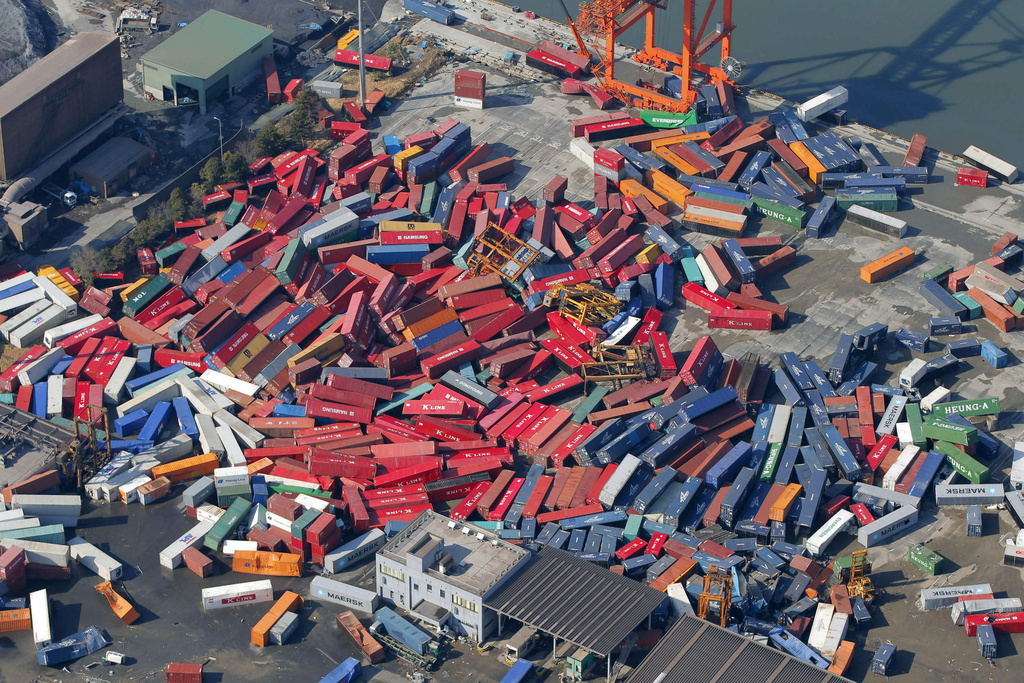
As Japan reels from an earthquake, tsunami and nuclear emergency, an expert in risk and durable development tells swissinfo.ch about the implications of the disaster.
Dominique Bourg, a philosopher and professor at the Institute of Land Use Policies and Human Environment at Lausanne University, predicts that while life is going to get hard for countries that rely on nuclear power, there’s currently no major alternative.
On Tuesday Japan was still scrambling to avert a meltdown at a stricken nuclear plant after an explosion at one reactor and exposure of fuel rods at another, days after the devastating earthquake and tsunami that killed at least 10,000 people.
Millions in the tsunami-battered region north of Tokyo were without power and water in what Prime Minister Naoto Kan has called his country’s worst crisis since the Second World War.
swissinfo.ch: The catastrophes hitting Japan reveal how fragile we are when up against nature, despite – or perhaps because of – our technology. What would have happened had the quake occurred in the middle of the 20th century?
Dominique Bourg: More buildings would certainly have collapsed. Their current resistance to earthquakes is the positive side of technology.
On the other hand, we obviously wouldn’t have had the nuclear problem – or such big breakdowns in the communication and electricity networks. Also in those days national interdependence wasn’t so great, so the catastrophe would have affected only Japan. Today, industrially and probably also financially, the entire planet will be affected.
Japan is the sole producer of some goods, such as vital components of the iPhone or iPad or the steel for the nuclear power reactor tanks. I don’t know whether those factories have been hit, but the power plants which have had to be cooled with sea water will never start up again. This means the country will experience many months – possibly years – of electricity restrictions. That will be a serious shock for its industrial productivity.
swissinfo.ch: Japanese nuclear power plants were said to be the safest in the world…
D.B.: The plants were designed to resist an earthquake and a tsunami. And up to a point they’ve done that – they didn’t collapse. In general, when drawing up plans for this kind of resistance engineers even go a bit beyond what they think could be the maximum credible accident.
Another issue that totally changes things – and which has got nothing to do with the seismic problems or a tsunami – is that our sense of proportion in terms of natural risks has got nothing to do with what we’re going to experience in the coming century with climate change.
Whether we’re dealing with droughts, hurricanes or floods, our industrial installations – and I’m not thinking just about nuclear ones – are going to have to deal with conditions that risk being pretty surprising compared with what we’ve come up with in terms of security. We’re entering an unknown period. Throughout the 20th century humanity carried out an immense experiment on the biosphere – and without a safety net. We’re now slowly seeing the effects.
swissinfo.ch: To get back to the problem in Japan, do you think the shock will trigger a departure from nuclear energy and towards the decrease in energy consumption beloved by ecologists?
D.B.: What is certain is that things will get more difficult for the nuclear industry. But giving up nuclear, in countries like Japan, which gets 35 per cent of its electricity from it – in France it’s even more [80 per cent] – will take decades. And that’s ignoring the fact that at present there isn’t any alternative that doesn’t produce carbon.
Renewable energies, on a global scale, make up less than two per cent. Sure, some countries are nudging ten per cent and will go beyond that, but there isn’t a means of large-scale substitution. Now, it’s true that the first thing to do is to consume less – and a lot less electricity. And in this respect we’re entering a scenario of decreased consumption – something I’m not going to complain about at all. But we can’t make it happen just by snapping our fingers.
And it’s also important to realise that we’re really changing our model of society. I’m not sure that the entire population agrees about going in this direction, but it is in fact the most reasonable way to go. At any rate, with the double bind of the climate and the exhaustion of fossil fuels, we won’t escape it.
swissinfo.ch: The pictures from Japan look like something from a Hollywood disaster film, such as “ 2012”. Will some people confuse fiction and reality to the point that they believe the end of the world really will come next year?
D.B.: The end of the world, absolutely not. However, I’m convinced that in the decades to come we’ll experience the end of a world: our own.
The death toll from Friday’s earthquake and tsunami is expected to exceed 10,000, and rescue workers are continuing to search northeastern coastal cities for survivors.
Radiation levels fell at the Fukushima nuclear power plant on the northeastern coast, the Japanese government said on Tuesday, after an earlier spike in radiation following a third blast. People within a 30 km radius of the facility have been urged to stay indoors.
On Tuesday the Swiss Federal Nuclear Safety Inspectorate said, however, that it believed that large amounts of radiation had been released after the explosion and that a reactor’s steel containment system had been damaged. They called the situation “very serious”.
A Swiss search and rescue team has now started work in Japan. 23 experts and 9 dogs are stationed around 100 kilometres north of Sendai, which was hard hit by the quake and tsunami.
Some of the most devastating earthquakes in recent times struck last year.
The largest quakes in Haiti, Chile and New Zealand claimed well over 200,000 lives, almost exclusively in Haiti, and caused an estimated $50 billion (SFr46.7 billion) in damage to the economy.
Losses varied substantially across affected regions. In the case of Chile and New Zealand, events showed that strict implementation of building codes saved lives by significantly reducing building damage.
On a worldwide basis, natural disasters cost insurers $22 billion in 2009. However, compared with previous years, 2009 was a low loss year.
Historically,disaster losses have been highly volatile, but with a strong upward trend.
(source: Swiss Re, Zurich)
(Translated from French by Thomas Stephens)

In compliance with the JTI standards
More: SWI swissinfo.ch certified by the Journalism Trust Initiative
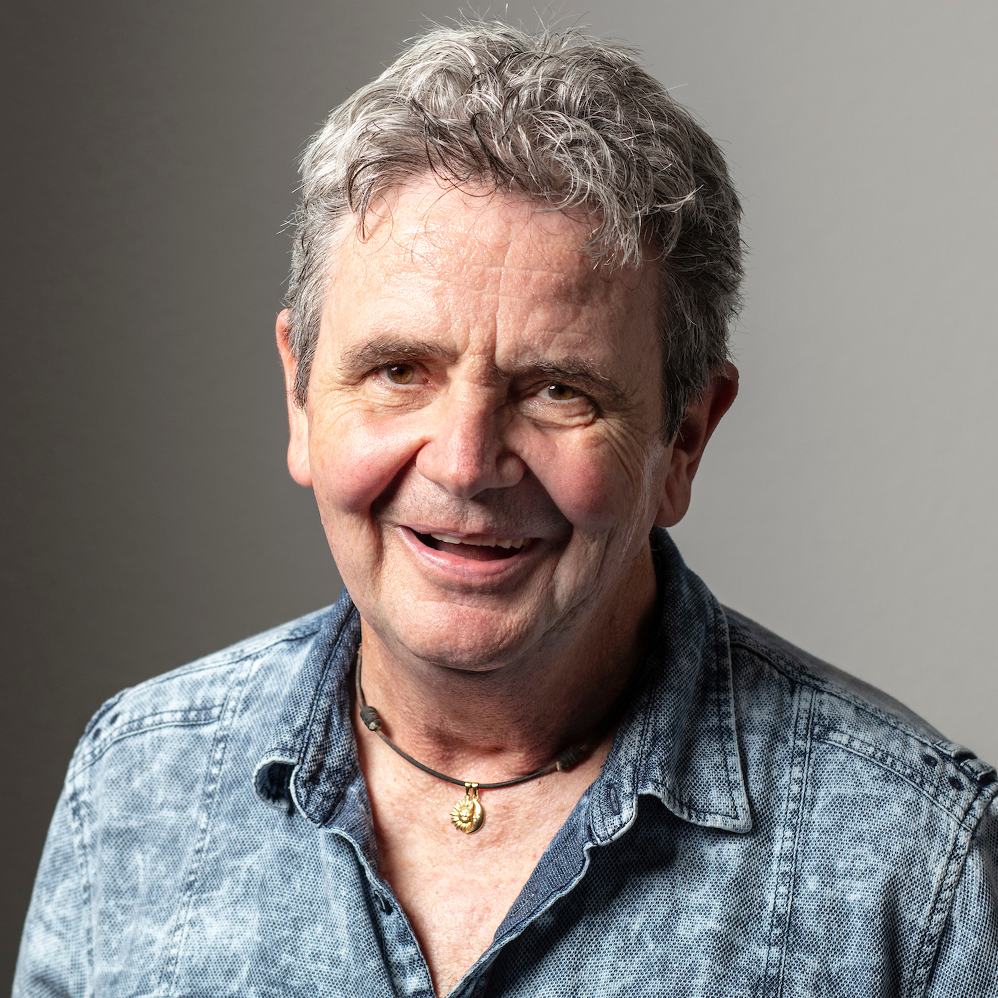
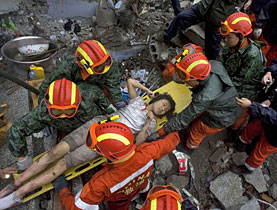

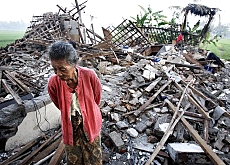
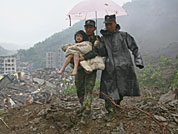
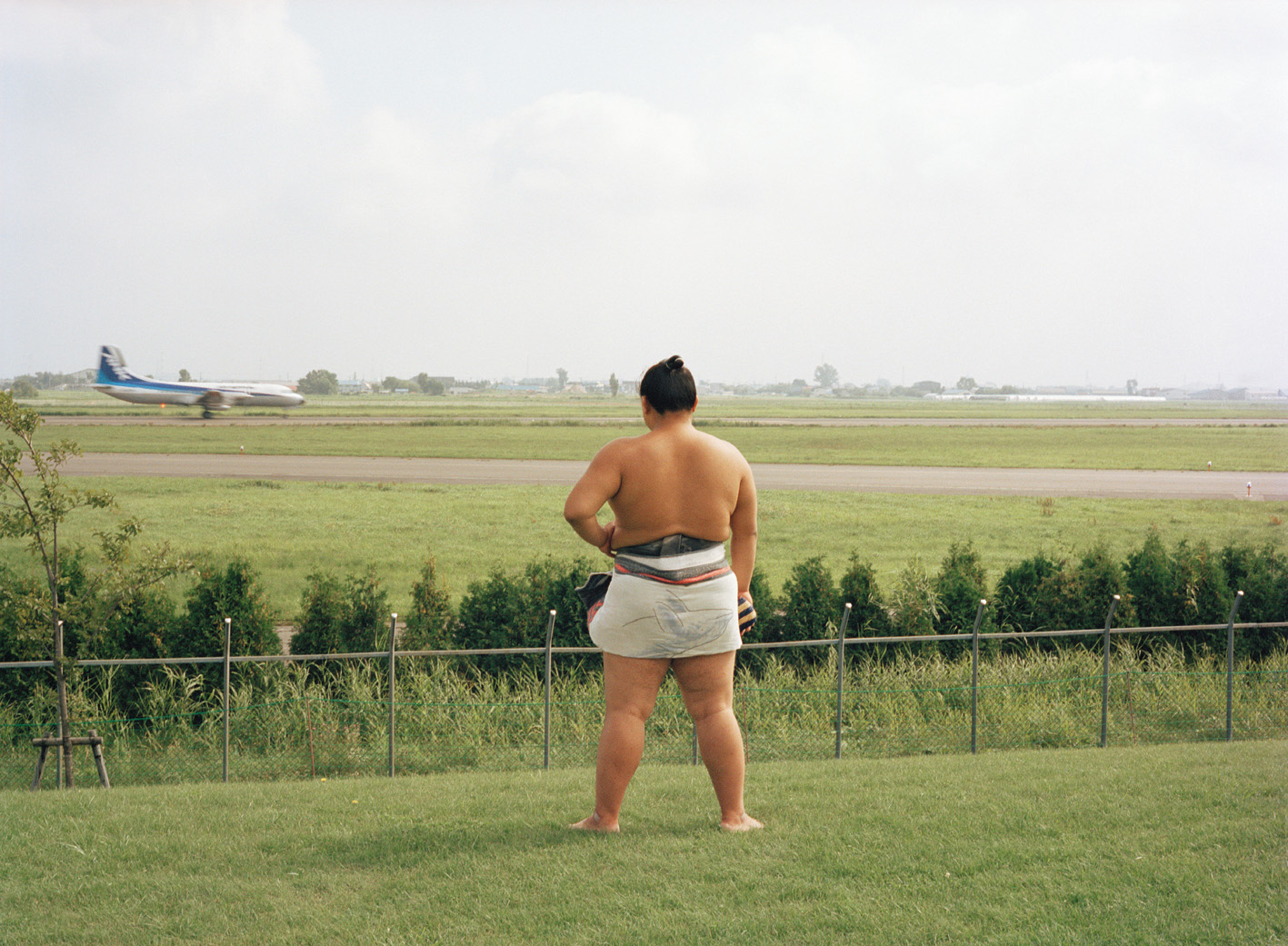
You can find an overview of ongoing debates with our journalists here. Please join us!
If you want to start a conversation about a topic raised in this article or want to report factual errors, email us at english@swissinfo.ch.